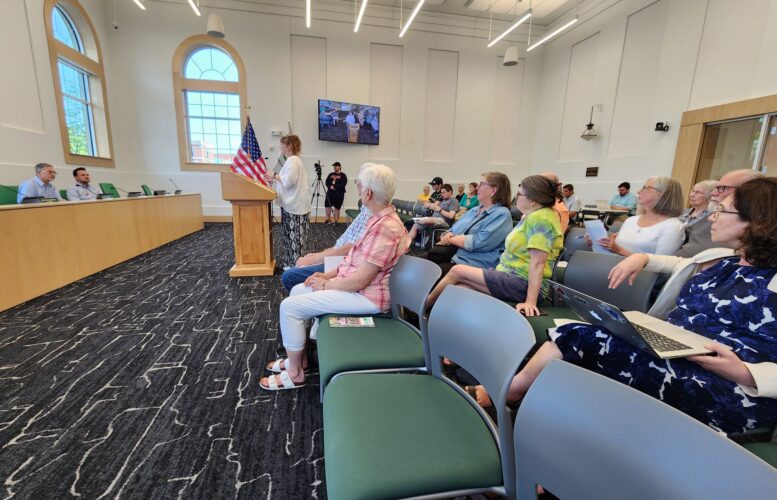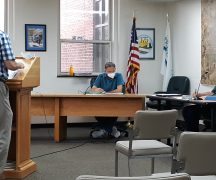By JAN McLAUGHLIN
BG Independent News
Bowling Green residents have asked City Council to find some common ground when it comes to feeding wildlife in their yards.
Prior to the regular council meeting on Monday evening, the public was asked to give input on an ordinance prohibiting outdoor feeding of wild animals in the community – with an exception for feeders for songbirds.
Council member Bill Herald stressed that while the second reading of the ordinance was on Monday’s agenda, the issue is not a done deal.
And the city’s communications director, Amanda Gamby, wanted to make the city’s intentions clear.
“The city does not hate wildlife,” she said.
But people who feed wildlife are likely unaware of the harmful consequences to the animals, she said.
Wild animals fed by humans can become accustomed to people, according to the Ohio Department of Natural Resources, causing the animals to lose their fear of people and become aggressive. So in order to promote a safer and healthier community, City Council is being asked to adopt an ordinance prohibiting the feeding of wild animals.
Working with the ODNR, Bowling Green came up with legislation intended to prevent deer from devouring landscaping plants, turkeys from pecking people, and raccoons and opossums from crawling into spaces they don’t belong in houses. The proposed ordinance is based on one already enacted in the city of Dublin.
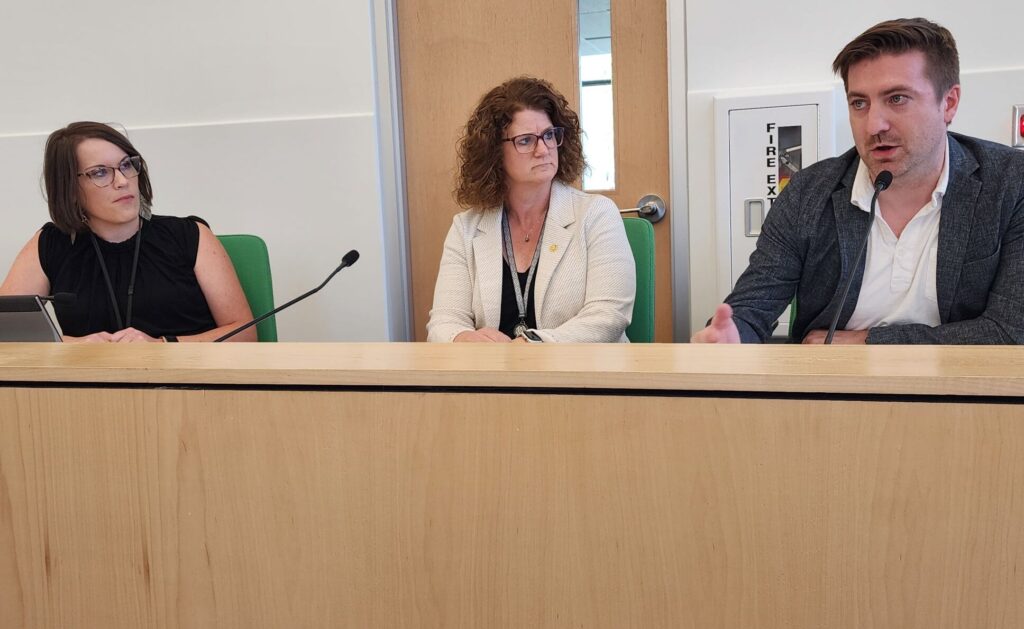
The ordinance addresses other negative impacts from wild animals being fed by residents, including the spread of disease, disruption of natural foraging behaviors, more vehicle-animal crashes, damage to landscaping, and aggressive animal behaviors.
The ordinance covers feeding of wild animals including squirrels, chipmunks, groundhogs, raccoons, skunks, opossums, muskrats, deer, foxes, black bears, wild turkeys, bobcats and coyotes.
Gamby explained that complaints from residents are increasing about neighbors intentionally feeding wildlife. City officials have heard from residents annoyed with their neighbors who put out salt licks for deer, and peanuts in the shell for other animals.
The wild turkeys became the “poster child” of the problem last year, Gamby said, after some turkeys became aggressive with people outside Wood County Hospital, and with residents and mail carriers in some neighborhoods.
As ODNR staff tried to capture some of the more aggressive male turkeys to relocate them to other areas, they noted several homes where bowls of food were left out for wildlife.
The city is trying to encourage residents to “love them wild – leave them wild.”
According to the ordinance, violations of the ordinance will be minor misdemeanors. Residents will not be cited if a deer drinks from a bird bath, or eats from a garden, Gamby said. The city just wants residents to stop serving up “wildlife buffets,” with corn, peanuts, salt licks and even hotdogs.
City Attorney Hunter Brown said wording will be added to the ordinance making it clear that people will only be cited if they are “knowingly” feeding wildlife, and only after multiple violations.
Most of the residents who spoke at Monday’s meeting asked the city to consider some sort of a compromise.
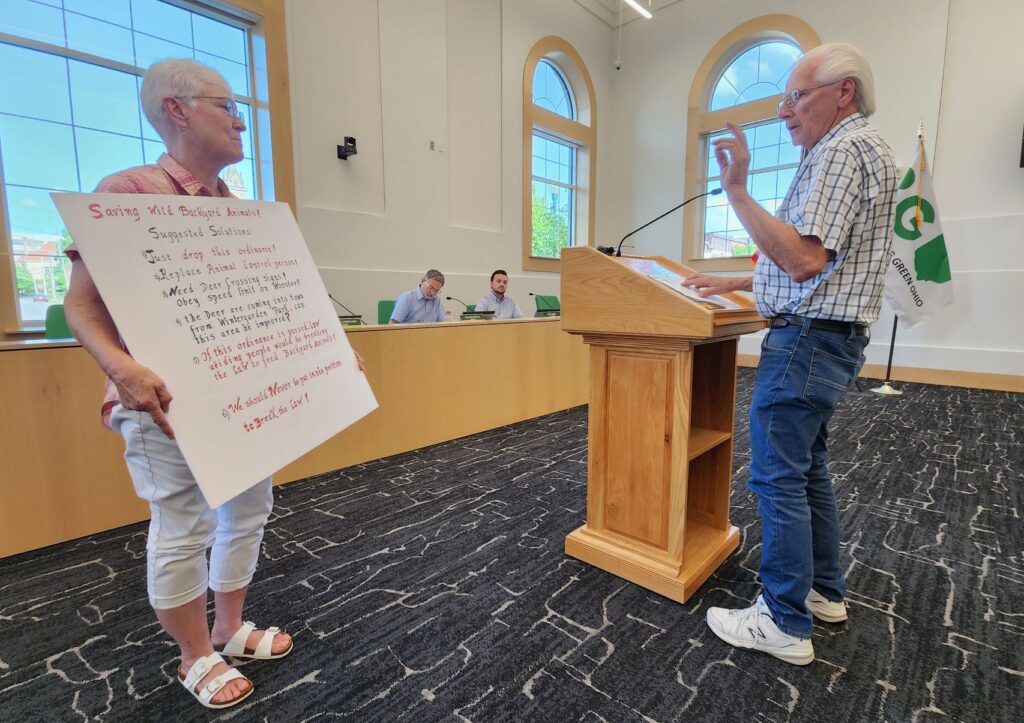
Richard and Maxine Beaverson came prepared with a petition with 114 signatures and a posterboard suggesting other options, including posting deer crossing signs and replacing the city animal control position. The couple was disturbed by the thought of being cited for feeding animals in their yard.
“Law abiding people would be breaking the law to feed backyard animals,” the sign stated. “We should never be put in the position to break the law.”
Wood County Common Pleas Court Judge Matt Reger offered his perspective as a city resident.
“I don’t like squirrels. I don’t like deer in my backyard,” he said.
However, Reger also said he isn’t a fan of the proliferation of ordinances.
“Is this legislation the least restrictive means to addressing the problem?” he asked. And could it pit neighbors against each other, putting prosecutors in difficult situations?
Reger suggested city officials look at an existing city ordinance that already makes it unlawful for residents to keep and maintain wild animals.
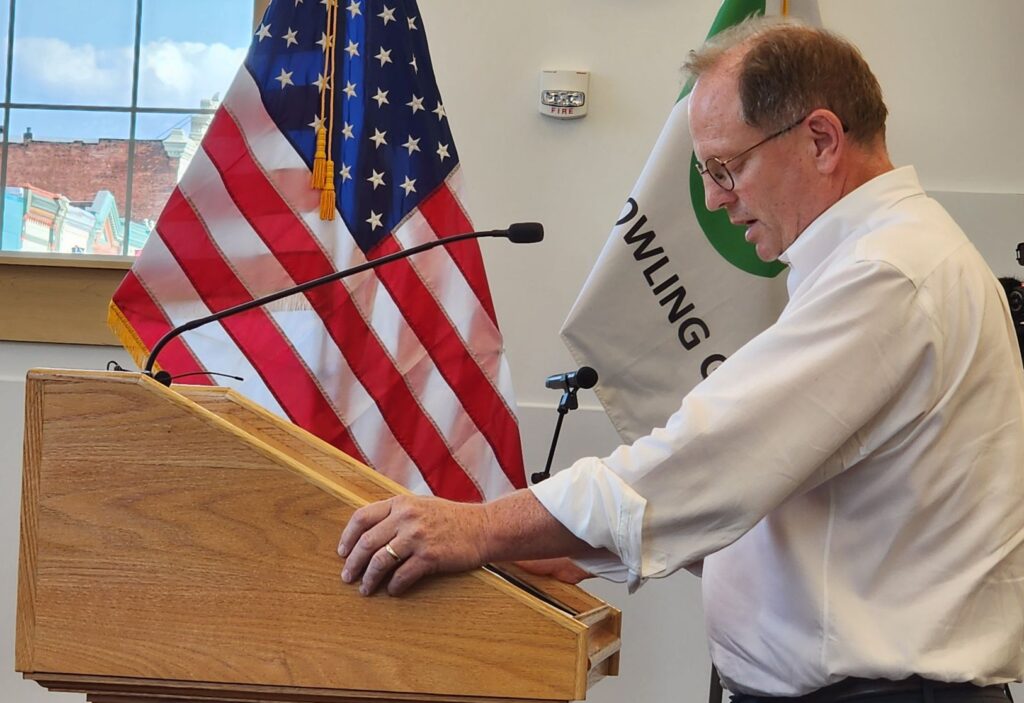
Linda Barber asked City Council to find a balance between wildlife and humans, suggesting that city planning design space for wildlife and make Bowling Green a model for other communities.
“It behooves us to try to plan ahead,” Barber said. “This is not going to go away because of a loss of habitat.”
Pam Day said the proposed ordinance has many city residents “uneasy, uncomfortable, and even rebellious.” Something so commonplace and relaxing as feeding wildlife “has suddenly become a bone of contention.”
The ordinance is too far-reaching, Day said. “I believe we can work together to make it more reasonable.”
Vassiliki Leontis spoke up for the animals, saying that humans have displaced them.
“I believe they have the right to exist, just like we do as humans,” she said.
Leontis asked that the wording of the ordinance take into consideration the animals that are just looking for places to live. She said she plants a garden with the vegetables that deer enjoy. “I provide the very things they love to eat.”
“I am in favor of trying to protect wildlife,” she said. “At least bring about some balance.”
Another resident, Connie Cadwallader, sympathized with wild animals since their habitats have been taken for communities and for farm fields. Very few patches of trees are left anymore for wildlife.
“These wild animals would love a forest,” she said.
Chris Haar said the overpopulation of deer often occurs where there are no natural predators. The density of deer elsewhere in this region has led to culling of herds.
“There are consequences for having an animal without a predator,” she said.
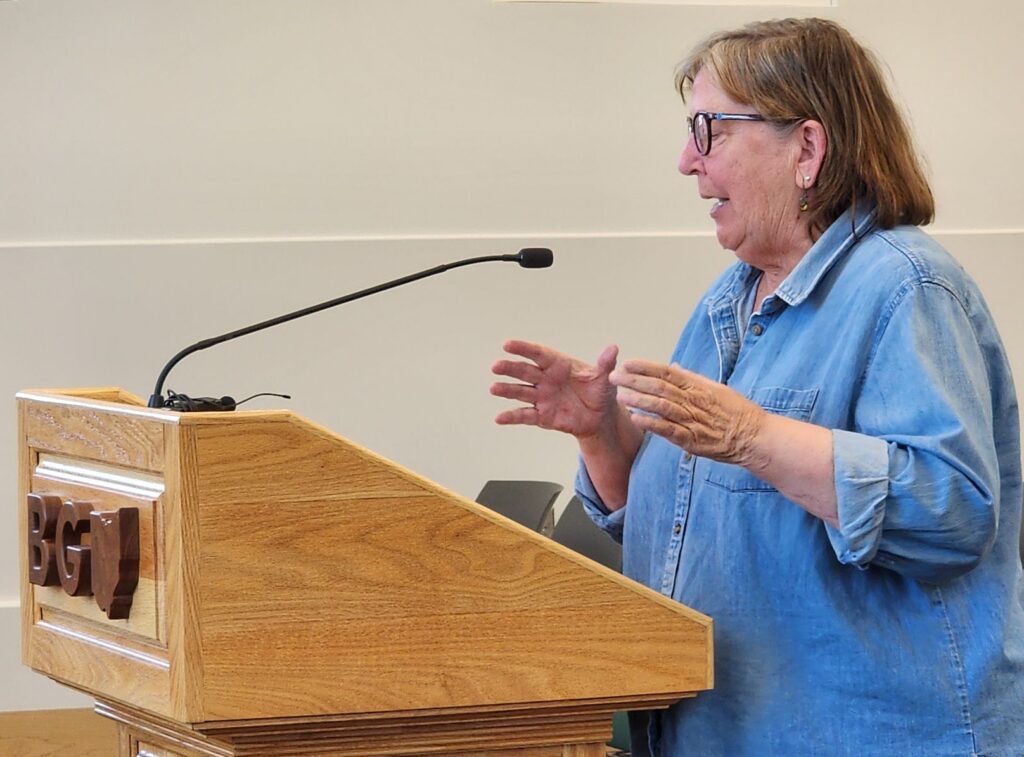
And Melissa Shaffer said that while she enjoys seeing deer, there is a difference between a deer coming by to nibble on a garden and having a neighbor who puts out as many as eight dishes of dried corn and a wading pool of water for the deer.
City Council will hear the third reading of the proposed ordinance on June 17. Herald said council may vote on it then or continue working on the legislation.
The City of Bowling Green website lists several tips from ODNR about humans coexisting with wild animals. The info page also lists resources that may be helpful, and answers to frequently asked questions.

